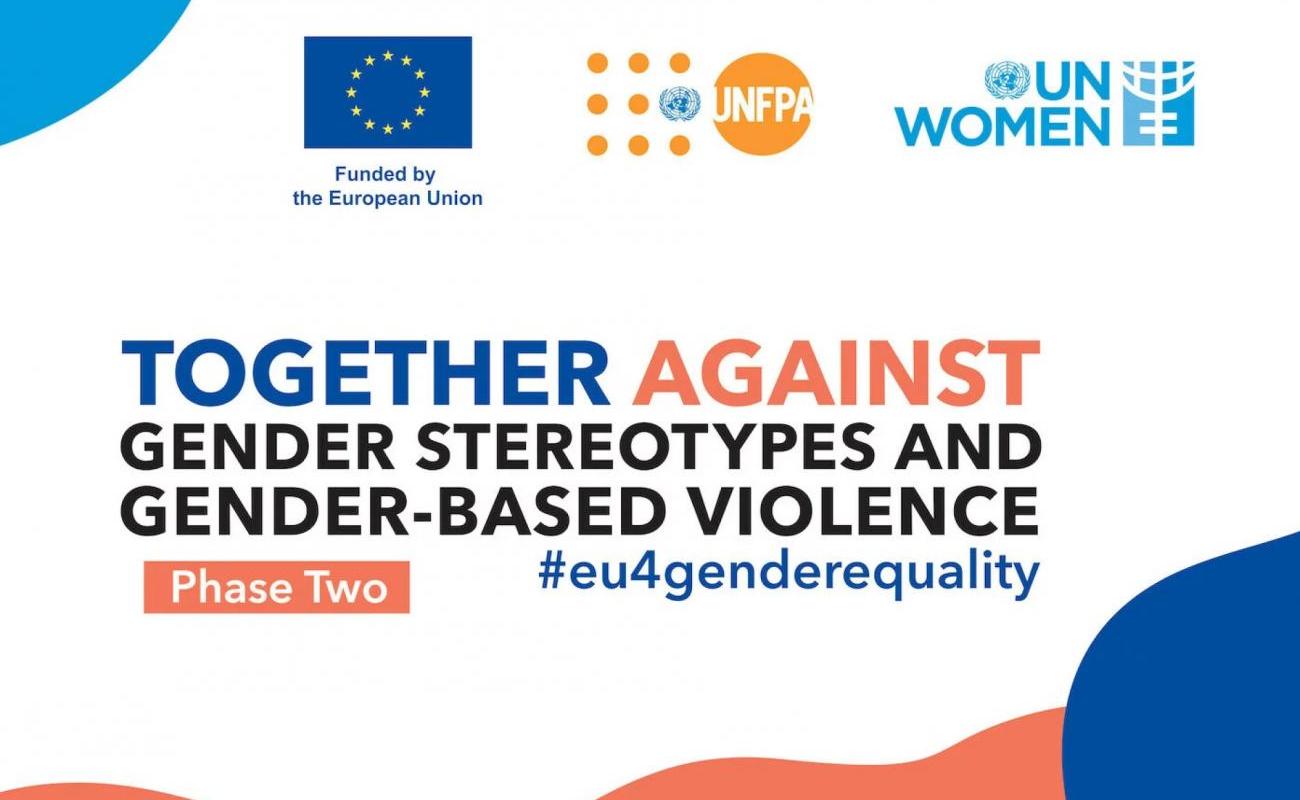EU, UN Women and UNFPA launch second phase of their programme promoting gender equality in the Eastern Partnership

On 20 March, the UN Women Regional Office for Europe and Central Asia and the UNFPA Regional Office for Eastern Europe and Central Asia, together with the European Union, started Phase II of the regional programme ‘EU 4 Gender Equality: Together against gender stereotypes and gender-based violence’.
The programme aims to reduce gender discriminatory attitudes and practices between women and men in institutional and community spheres, including unpaid domestic and care work in the six Eastern Partnership countries: Armenia, Azerbaijan, Belarus, Georgia, the Republic of Moldova, and Ukraine.
Phase II of the programme, running from January 2024 to May 2026, is supported by a budget of €5 million. The programme is addressing the root causes of gender inequalities by engaging a wide range of government bodies, civil society and women’s organisations, media representatives, and other non-traditional partners. Strong focus is given to partnering with CSOs, conducting innovative communication campaigns, and working with men through Fathers’ Schools.
“Together, we are working to foster an environment where every woman, man, girl and boy have the opportunity to thrive, contribute, and shape a more inclusive future, free from discriminatory gender stereotypes,” said David Cullen, Head of Unit at the Directorate-General for Neighbourhood and Enlargement Negotiations (DG NEAR), C2.
Since the launch of the programme in 2020, more than 41 million people have been reached in the six target countries, 22 civil society and women’s organisations received small grants to implement innovative initiatives, and close to 4,000 men benefited from 49 newly established father schools.
A Study on Gender Norms and Stereotypes, conducted under the first phase of the joint programme, showed that in the six programme countries, despite areas of improvement and some promising indicators, discriminatory social norms and attitudes continue to hinder progress for women and girls across multiple life domains. This results in different manifestations of gender inequalities, such as a high prevalence of violence against women, an unequal distribution of unpaid domestic and care work, gender-biased sex selection, a gender pay and income gap, and underrepresentation of women in decision-making positions.
